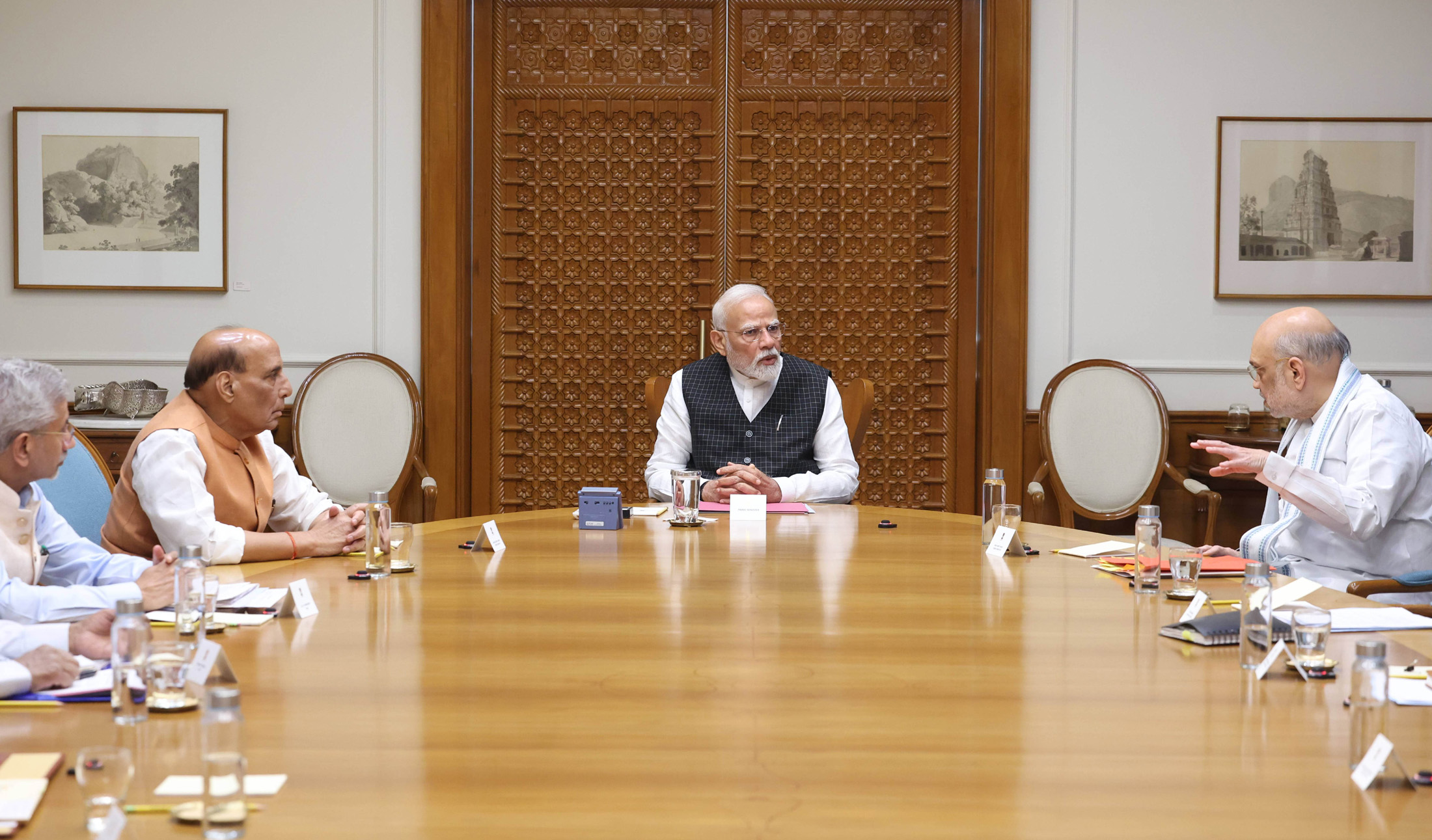New Delhi, April 23 : In an unprecedented move that could have sweeping implications across South Asia, India has indefinitely suspended the Indus Waters Treaty with Pakistan, citing “cross-border linkages” to the deadly terror attack in Jammu and Kashmir’s Pahalgam. The decision, taken by the Cabinet Committee on Security (CCS), follows the killing of 26 people, including a foreign national, in a brutal assault claimed by the Pakistan-based terror group The Resistance Front.
As reported by NDTV New Delhi, Foreign Secretary Vikram Misri, briefing the media after the CCS meeting, said, “In the briefing to the CCS, the cross-border linkages of the terrorist attack were brought out. It was noted that this attack came in the wake of the successful holding of elections in the Union Territory and its steady progress towards economic growth and development.”
The strongest diplomatic response among the announced measures is the suspension of the Indus Waters Treaty of 1960. Brokered by the World Bank, the agreement had until now survived three wars between India and Pakistan. Under the treaty, India controls the eastern rivers — Ravi, Beas, and Sutlej — while Pakistan has rights to the western rivers — Indus, Jhelum, and Chenab.
With this move, India will stop the flow of water from these rivers into Pakistan — a decision that could affect tens of millions of Pakistani citizens. Water Resources Minister CR Paatil hailed the decision as “a very good decision taken by the Cabinet,” recalling prior ultimatums issued by Prime Minister Narendra Modi and Home Minister Amit Shah.
Visa Exemptions Cancelled, Diplomats Expelled
Beyond the suspension of the treaty, India has also introduced sweeping diplomatic and immigration restrictions on Pakistani nationals. The Attari-Wagah border crossing has been shut with immediate effect, and Pakistani citizens who crossed into India with valid endorsements are instructed to return before May 1.
In a move with significant regional implications, India has revoked the SAARC Visa Exemption Scheme (SVES) for Pakistani nationals. “Any SVES visas issued in the past to Pakistani nationals are deemed cancelled. Any Pakistani national currently in India under SVES visa has 48 hours to leave India,” said Misri.
The SVES was a symbol of regional cooperation under the South Asian Association for Regional Cooperation (SAARC), enabling visa-free travel for designated categories such as judges, parliamentarians, and athletes. Its revocation underscores a decisive shift in India’s posture towards Pakistan.
Further, defence advisers — including naval and air personnel — stationed at the Pakistani High Commission in New Delhi have been declared persona non grata and given a week to leave. India will reciprocate by withdrawing its own defence staff from Islamabad. The total strength of diplomatic missions in both countries will be cut down from 55 to 30 by May 1.
Misri also confirmed that the CCS has ordered the security forces to maintain “high vigil,” emphasizing that those behind the Pahalgam attack will be brought to justice. “As with the recent extradition of Tahawwur Rana, India will be unrelenting in the pursuit of those who have committed acts of terror, or conspired to make them possible,” he added.
Water, War, and the Message from New Delhi
The suspension of the Indus Waters Treaty marks a watershed moment in India-Pakistan relations. While New Delhi had in the past hinted at using the treaty as leverage — including in 2019 after the Pulwama attack — this is the first time it has been formally held in abeyance.
The Resistance Front, which claimed responsibility for the attack, is believed to be an offshoot of Lashkar-e-Taiba, the terror outfit responsible for the 2008 Mumbai attacks. That Pakistan-based terrorists continue to strike at Indian civilians even as peace and development efforts gain momentum in Jammu and Kashmir has evidently led to a tipping point in New Delhi.
Pakistan, which is already on the brink of a water crisis due to rapid population growth, climate change, and poor water management, is likely to be severely affected. Islamabad has previously stated that any move to exit or suspend the treaty would be viewed as “an act of war.”
New Delhi’s decision, however, sends a clear message: support for terrorism will come with consequences that are both severe and sustained. As one official put it, quoting Prime Minister Modi’s earlier words, “Blood and water can’t flow together.”





